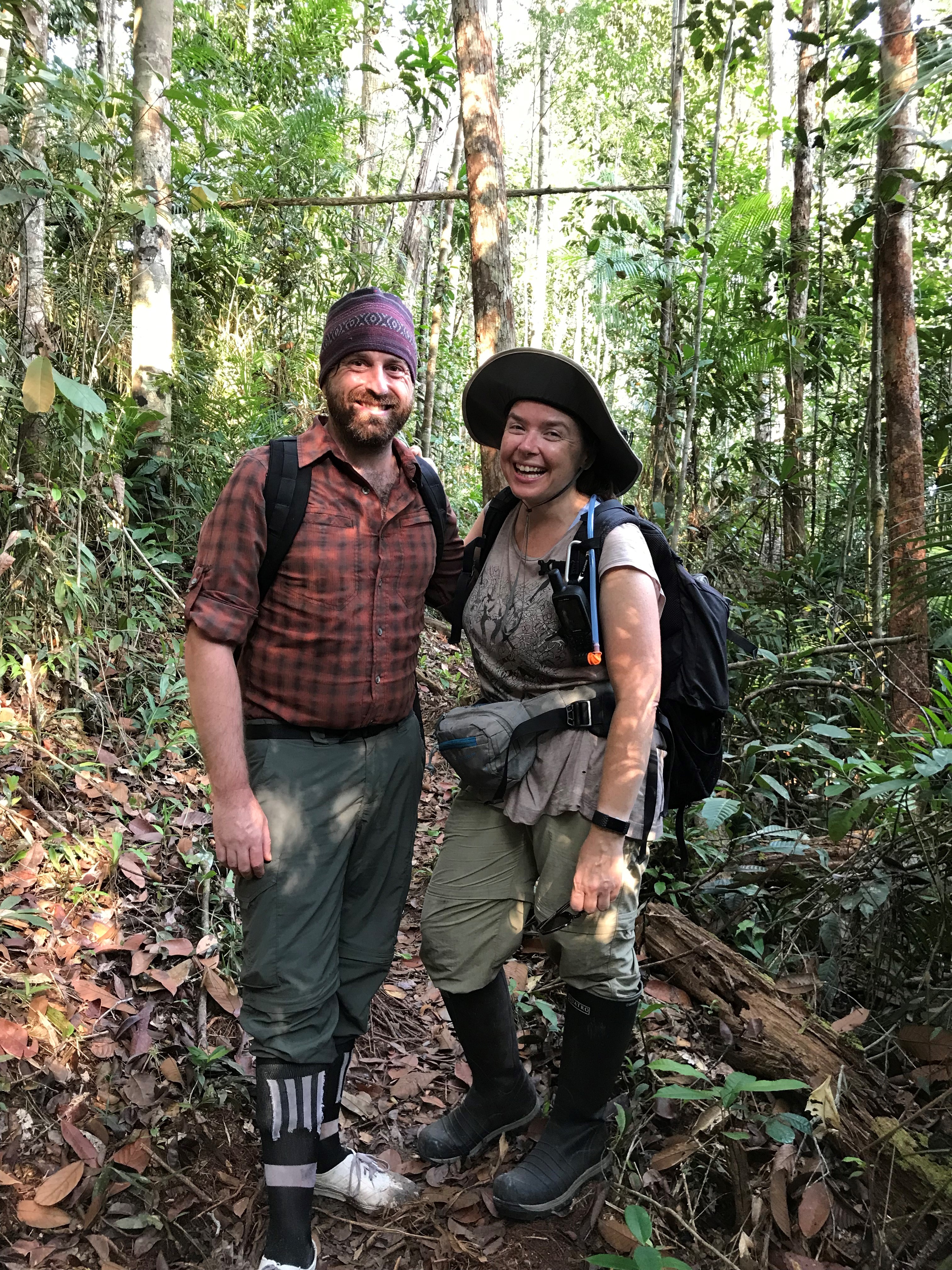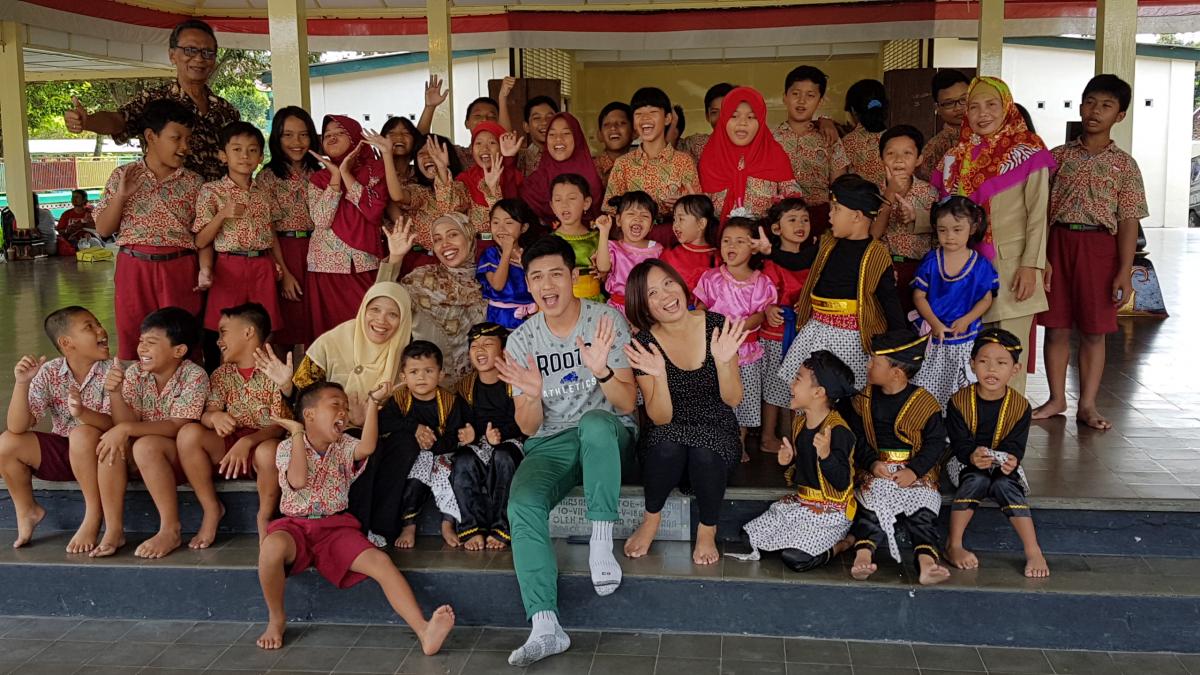All Disciplines (Research)
Indonesia
Number of recipients
In addition to being a prestigious academic exchange program, the Fulbright Program is designed to expand and strengthen relationships between the people of the United States and citizens of other nations and to promote international understanding and cooperation. To support this mission, Fulbright Scholars may be asked to give public talks, mentor students, and otherwise engage with the host community, in addition to their primary activities.
Conduct research in applicant’s area of specialization. Research scholars should conduct research in their area of expertise. Projects may focus on contemporary Indonesia or be comparative in nature. In addition to research, scholars may be asked to give public talks, advise students, train Indonesian research team members, and engage with the academic community.
Preference will be given to projects that address issues of public concerns in Indonesia and involve collaborations with Indonesian scholars.

Most public and private universities throughout Indonesia, depending on research permit approval. Please be advised that certain locations may be restricted according to Indonesian Government policy. For instance, projects in Aceh, Papua, West Papua, and Central Sulawesi (Poso) are unlikely to receive government permission.
Five to ten months for research grants. Grants of less than five months are not available due to permit complications.
Research grants can begin anytime from September 2025 through May 2026, pending the research permit and visa approval by Indonesian government.
Scholars who plan to be accompanied by their school age children during the grant period must be flexible with the starting date of their grant, as that may not always coincide with the beginning of the academic year in Indonesia.
Additional funding will be available to scholars for academic-related travel (up to three trips) within Indonesia. Each trip must have an academic focus, such as visiting an academic institution, and must include lectures or other academic programs. Each trip and academic program must be approved by the Commission prior to travel. Commission staff can assist with contacts at other institutions.
Fulbright scholars are also encouraged to do engagement projects with their host institutions during their grants. Projects approved by the commission will receive funding.
Scholars can also apply for additional research support and use the funds to cover research expenses such as research assistants, equipment, transportation, etc.
Fulbright East Asia Pacific Regional Travel Program
As conditions allow, Fulbright Scholars in the East Asia and Pacific (EAP) region may have the opportunity to apply for funds to support short-term (3-14 days) travel to other countries in the EAP region for activities such as lectures, workshops, graduate or faculty seminars, master classes or recitals, curricular advising, or panel presentations. EAP Regional Travel Program funding covers transportation only. Regional Travel Program activities/host sites should not be included in the initial Fulbright application. Scholars may start the process of seeking out invitations for short-term activities in other EAP countries once notified that they have been selected for a Fulbright grant but will only be able to apply for travel program funds, conditions permitting, once they have actively started their Fulbright grant in their host country. Scholars on Flex grants are not eligible for the regional travel grant.
All applicants must meet the Program eligibility requirements (click to review the requirements).
A letter of invitation is strongly preferred, since it is required by the Government of Indonesia when applying for the permit and visa. The invitation should come from higher education institutions or state or private research and development centers. NGOs are not eligible as host institution. AMINEF can assist in providing information about potential host institutions.
Applicants must register qualified language evaluator, such as a language instructor or a translator, to conduct the external assessment in the application. Being a native speaker alone does not qualify an individual to conduct the assessment.
Applicants who are native speakers do not need to complete an external evaluation.
Indonesian language fluency sufficient to complete the research project is required. Research applicants must submit a language proficiency report. Applicants without Indonesian language skills should explicitly address the issue in their discussion of the feasibility of the project in their project proposal.
Academics must have a record of scholarly publications.
Qualified professionals must have recognized professional standing and substantial professional accomplishment in their field.
You may be asked to participate in an interview as part of the in-country selection process.
List of accredited institutions in Indonesia
List of universities in Indonesia by QS
Information on BRIN Ethical Clearance process
American Indonesian Exchange Foundation (AMINEF)
U.S. Department of State information on Indonesia
For further information, contact AMINEF.
For more information on the Fulbright U.S. Scholar Program, please visit our East Asia and the Pacific regional webpage and view our schedule of upcoming webinars.
Email the East Asia and the Pacific Team with questions about applying.
$2,500 per month
$1,400 - $1,800 per month will be provided to Fulbright scholars to arrange their own housing.
Housing allowance varies depending on the number of accompanying dependents and location/city of the assignment.
Roundtrip international travel arranged by AMINEF for the Fulbright scholar on a U.S. flag carrier in economy class only.
Travel for one accompanying dependent is also provided. The accompanying dependent must be present in Indonesia during the full grant period to qualify, due to complicated permit procedures. According to Indonesian immigration law, only spouses with marriage certificates and children under 17 years qualify as dependents. To obtain visa for a child, marriage certificate of the parents will also be required.
One time excess baggage allowance: $750
One time research/relocation allowance: $750 (for research grants)
For Fulbright U.S. Scholar awards, AMINEF will reimburse scholars for dependent tuition up to a maximum of $5,000 per school-age child in grades K-12, for up to two children per family. In order to be reimbursed, receipts from the school(s) in Indonesia where the children are enrolled must be presented to AMINEF. This is a one-time reimbursement ONLY. Please note that while this amount may cover costs at many local Indonesian public and private schools, it may not cover the full tuition costs of many international schools. Any tuition above the one-time $5,000 allowance per dependent is the sole responsibility of the Fulbright scholar.
Dependents must accompany the grantee for at least 80% of the period abroad and a minimum of one semester in order to qualify for additional dependent benefits. Dependent benefits are not provided to Flex grantees.
For metro areas, especially larger cities in Java and Bali, the estimated cost of living per day (meals and transportation) is between $30-$50. The rental cost for apartment or housing is $500-$1,500 per month. As for the smaller cities, especially outside of Java and Bali, the estimated cost of living per day (meals and transportation) is between $20-$30. The rental cost for apartment or housing is $300-$700 per month.
Monthly local transportation allowance (based on city of assignment): $400-$500 per month
One-time permit allowance of $250 to $500 for the Fulbright scholar. Additional permit allowance will be available for one dependent.
Supplemental permit allowance will be available for Fulbright research scholars who will enter national parks/conservation areas.
For Fulbright U.S. Scholar awards, scholars are encouraged to take advantage of a two-week intensive Indonesian language course in Indonesia during their grant period. AMINEF will assist in arranging this training and pay the training provider as well as transportation and accommodations if the training site is other than the scholar's teaching/research site.
Final grant amounts will be determined prior to the start of the academic year and are subject to the availability of funds. The United States Department of State and the Fulbright Commission in the host country reserve the right to alter, without notice, participating countries, number of awards and allowances.
Indonesia
Indonesia is the world's fourth most populous nation and third largest democracy. With more than 17,000 islands, this vast archipelago is rich in natural resources and possesses exceptional biodiversity. Its cultural diversity and heritage--with numerous ethnic groups and hundreds of local languages--matches its natural diversity. Since political reform begun in 1998, Indonesia has worked to strengthen its democratic governance, and as the largest economy in Southeast Asia, it is critical to regional stability.
Finding housing in Indonesia is perhaps not always easy, but many housing agencies can help scholars navigate this process. Host institutions also can assist since they know more about the local environment. Apartments are more common in larger cities, while in smaller cities, options range from rental homes, boarding and guest houses, and home stays.
Most cities now have online transportation service that can be accessed through apps, like Gojek and Grab. In large cities, buses, trains, and taxis are common and in most places, it is possible to hire a car and driver for longer journeys in and out of town.
For scholars who bring dependents, there are more options for International (English-language) schools in larger cities, such as Jakarta, Bandung, Surabaya, Yogyakarta, and Denpasar.
For more information about living in Indonesia, please access this link.
 Dr. Juiching Wang (U.S. Scholar 2016) conducted research on
Dr. Juiching Wang (U.S. Scholar 2016) conducted research onDolanan Anak, traditional Javanese Children's singing games,
and its implementation in the school teaching and curriculum.
Visit our Scholar Directory to view and search all Fulbright alumni. You can also learn more about Fulbright Alumni Ambassadors.

Important information to consider before applying
Research scholars should expect to spend one to two months obtaining local permits upon arrival at their host institution location. Fulbright scholars may not travel to their research sites until they have obtained these permits.
Foreign researchers to Indonesia are required to seek Ethical Clearance and Research Permit from the National Agency and Innovation (BRIN) and Limited Stay visa for Research Activities (C315) from the Indonesian Directorate General of Immigration.
AMINEF will assist grantees in navigating the process to secure the necessary permits and visas, and grantees must also work with their host institutions to apply for the visa. Detailed procedures for obtaining a research permit will be communicated to grantees after selection.
Permission to enter more than one national park/conservation area will require a longer permit processing time and incur greater expense.
Permission to move samples will require a specific permit process and oftentimes it is not possible for researchers to obtain this permit.
Upon finishing research, foreign researchers may also be asked to submit data collected from their field research in Indonesia to BRIN through an online research repository. According to Indonesian Research Law, foreign researchers and their Indonesian collaborators are also expected to jointly publish the result of their research in an accredited international or national academic journal.